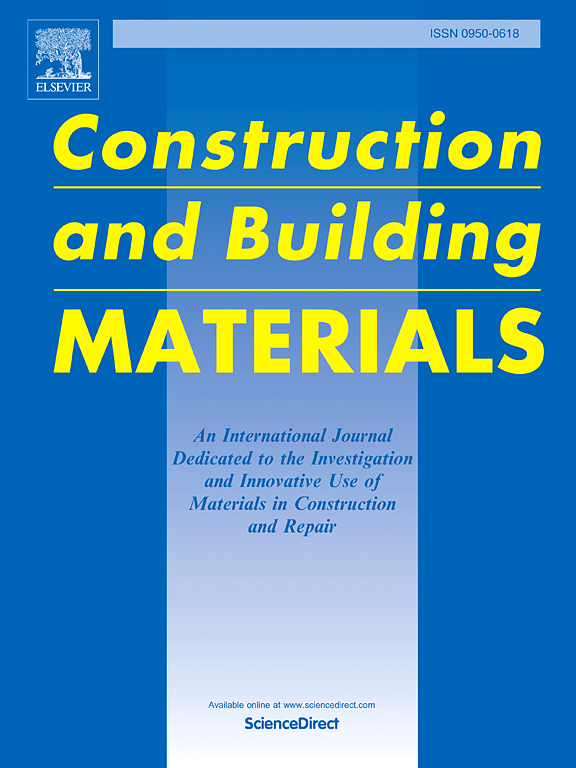Effect of thermal change on acoustoelastic effect in concrete
IF 7.4
1区 工程技术
Q1 CONSTRUCTION & BUILDING TECHNOLOGY
引用次数: 0
Abstract
Acoustoelastic technology, which measures changes in ultrasonic wave velocity to determine structural stress, shows significant potential for assessing stress in concrete structures. However, environmental temperature variations can affect ultrasonic wave velocity, thereby influencing the accuracy of acoustoelastic measurements. This study examines the impact of thermal changes on ultrasonic wave velocity in concrete (thermo-acoustoelastic effect) and compares it with changes caused by stress variations (classical acoustoelastic effect). Theoretical expressions for both thermal and classical acoustoelastic effects in a natural coordinate system are derived, and the sensitivity coefficients for each effect are provided. Equivalent elastic constant method is proposed for preliminary numerical analysis of both effects. Experimental investigations further explore how the thermal changes influence the classical acoustoelastic effect. Results reveal that the velocity change due to a unit temperature variation is approximately 40 % of that caused by a unit stress variation. This underscores the significant impact of temperature fluctuations on the application of classical acoustoelastic technology and highlights the need for an effective temperature compensation mechanism to ensure measurement reliability. This finding is of substantial significance for advancing acoustoelasticity-based stress detection technology in concrete structures.
热变化对混凝土声弹性效应的影响
声弹性技术,通过测量超声波波速的变化来确定结构应力,显示出评估混凝土结构应力的巨大潜力。然而,环境温度的变化会影响超声波速,从而影响声弹性测量的精度。本研究考察了热变化对混凝土中超声波传播速度的影响(热声弹性效应),并将其与应力变化引起的变化(经典声弹性效应)进行了比较。推导了自然坐标系下热声弹性效应和经典声弹性效应的理论表达式,并给出了每种效应的灵敏度系数。提出等效弹性常数法对两种效应进行初步数值分析。实验研究进一步探讨了热变化对经典声弹性效应的影响。结果表明,单位温度变化引起的速度变化约为单位应力变化引起的速度变化的40% %。这强调了温度波动对经典声弹性技术应用的重大影响,并强调了需要有效的温度补偿机制来确保测量可靠性。这一发现对于推进基于声弹性的混凝土结构应力检测技术具有重要意义。
本文章由计算机程序翻译,如有差异,请以英文原文为准。
求助全文
约1分钟内获得全文
求助全文
来源期刊

Construction and Building Materials
工程技术-材料科学:综合
CiteScore
13.80
自引率
21.60%
发文量
3632
审稿时长
82 days
期刊介绍:
Construction and Building Materials offers an international platform for sharing innovative and original research and development in the realm of construction and building materials, along with their practical applications in new projects and repair practices. The journal publishes a diverse array of pioneering research and application papers, detailing laboratory investigations and, to a limited extent, numerical analyses or reports on full-scale projects. Multi-part papers are discouraged.
Additionally, Construction and Building Materials features comprehensive case studies and insightful review articles that contribute to new insights in the field. Our focus is on papers related to construction materials, excluding those on structural engineering, geotechnics, and unbound highway layers. Covered materials and technologies encompass cement, concrete reinforcement, bricks and mortars, additives, corrosion technology, ceramics, timber, steel, polymers, glass fibers, recycled materials, bamboo, rammed earth, non-conventional building materials, bituminous materials, and applications in railway materials.
 求助内容:
求助内容: 应助结果提醒方式:
应助结果提醒方式:


